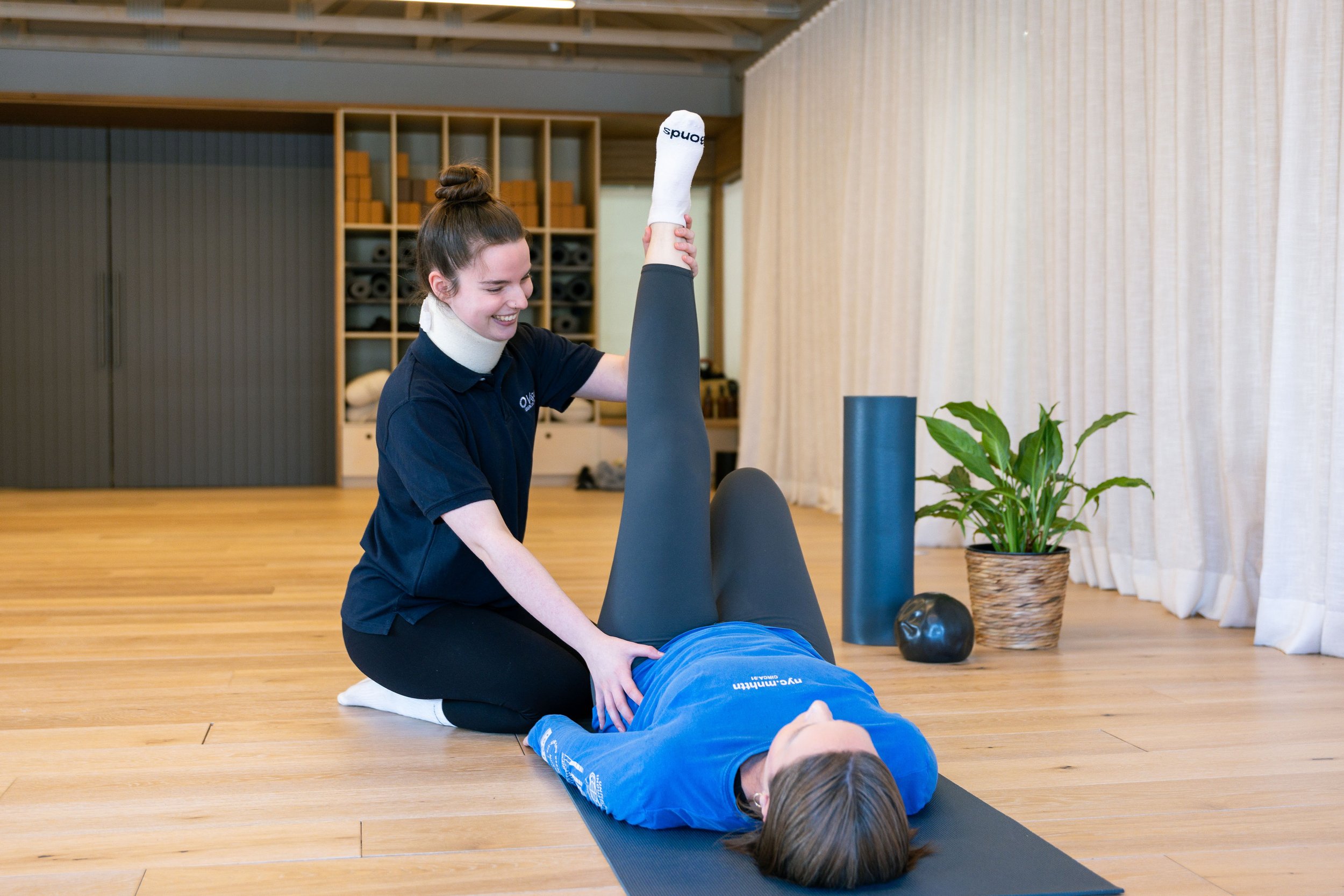
In-person and online consultations
The process
Initial consultation
Please allow up to three sessions for your initial consultation, depending on the complexity of your health needs.
Whether you’re exploring a possible invisible condition, managing an existing diagnosis, or seeking support for an injury, your initial consultation will be tailored to you. We take a comprehensive health and medical history at a pace that feels manageable and do an assessment to establish your baseline capacity, understanding that this process can be energy-intensive after a long healthcare journey.
Follow-up consultations
Ongoing consultations focus on supporting your progress and adjusting your plan as your symptoms, goals, or capacity change.
Sessions may include guided exercise, pacing review, symptom management strategies, and education to help you build confidence and independence.
Each appointment is flexible and collaborative, allowing you to move at a pace that feels safe, sustainable, and aligned with your current needs.
Treatment plan
After your initial consultation, we’ll create a personalised treatment plan tailored to your goals, symptoms and energy levels.
This may include movement that is progressed at your pace and tailored to you, pacing strategies, nervous system regulation and education to support long-term management.
Each session builds gradually and is adjusted as needed to ensure it remains safe, sustainable and aligned with your lifestyle.
Appointment pricing
Appointment pricing
Initial extended consultation (90 mins) - $160-$200
Initial consultation (60 mins) - $140-$160
Subsequent long consultation (60 mins) - $130-$150
Subsequent medium consultation (45 mins) - $110-$125
Subsequent short consultation (30 mins) - $90-$100
POTS assessment (40 mins) - $110-$125
✺ Frequently asked questions ✺
-
You don’t need a diagnosis to start getting support. If you're living with things like persistent fatigue, pain, or other ongoing symptoms, you're absolutely welcome to work with us.
-
No referral is needed to book in. You're welcome to self-refer at any time. If you do have a care plan or referral from your GP, that's totally fine too—we can work with whatever feels right for your situation.
-
Subsequent long consultations are intended for someone with a complex health history, has the capacity for a longer session, needs a bit more guidance, recently diagnosed, or needing a little extra time.
This session may include:
A supportive review of how you’ve been going since your last session
Adjustments to your current program (especially for pacing, pain, or energy changes)
New exercises, movement ideas, or strategies based on your feedback
Education around symptom management, flare planning, or goal setting
Space to talk through your experience and feel heard
Collaborative planning for the next steps based on what’s realistic and sustainable
Subsequent medium consultations suit those who prefer shorter sessions to support their energy and mobility needs, and who have a basic number of strategies for symptoms management with an existing level of knowledge about their condition(s).
Subsequent short consultations are designed for individuals checking in on progress, making small adjustments to your plan, or addressing specific questions. It is a good option if you have more experience managing your condition/s and implement a number of strategies for symptom management.
-
Medicare rebates are the same whether or not you hold a concession card.
-
Yes — if you have a chronic health condition, you may be eligible for up to five Medicare-funded sessions with an exercise physiologist each calendar year. To access this, you’ll need a referral from your GP as part of a care plan. Your condition must have been present (or expected to last) for six months or more, or be terminal. You also need to be seeing your GP and at least two other healthcare providers, like specialists or allied health professionals.
Aboriginal or Torres Strait Islander people may be eligible for up to 10 Medicare-covered allied health sessions each year.
People with type 2 diabetes may also be eligible for up to eight group-based sessions per year with an exercise physiologist, dietitian, or diabetes educator — with a GP referral.
-
Yes — starting from 1 July 2025, Medicare has funded exercise physiology sessions for autism and other complex neurodevelopmental conditions. To access this support, you’ll need a valid referral.
-
Both professions help people move and feel better — but we work in slightly different ways.
Physiotherapy usually supports you during the early stages of injury or flare-ups, uses hands-on techniques like massage, dry needling, or joint mobilisation, and focuses on reducing pain, swelling, or restoring joint movement.
Exercise Physiology helps with long-term recovery, chronic conditions, and invisible conditions, uses movement and exercise as medicine (no hands-on treatment), and focuses on energy management, strength, pacing, and function.
We often work together with physiotherapists! A physiotherapist might help you through the acute stage of an injury, and an exercise physiologist can support you with the next step — rebuilding your strength and helping you return to daily life in a sustainable, supportive way.
